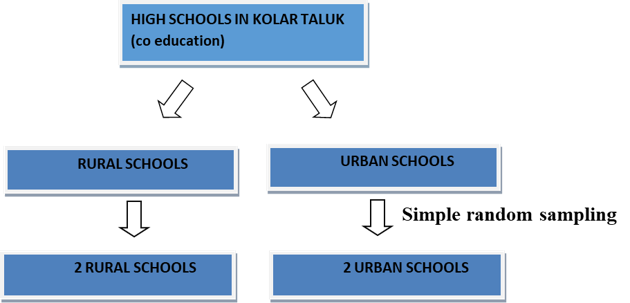


Journal of Clinical and Biomedical Sciences
DOI: 10.58739/jcbs/v13i2.23.16
Year: 2023, Volume: 13, Issue: 2, Pages: 37-43
Original Article
Anandu S 1,*, Prasanna Kamath B T2, Pradeep T S3
1 Postgraduate, Department of Community Medicine, SDUMC, Kolar, Karnataka, India
2 Professor & H.O.D, Department of Community Medicine, SDUMC, Kolar, Karnataka, India
3 Assistant Professor, Department of Community Medicine, SDUMC, Kolar, Karnataka, India
*Corresponding author email: [email protected]
Received Date:07 April 2023, Accepted Date:10 June 2023, Published Date:12 July 2023
The WHO defines a pandemic as spread of certain disease worldwide or across international borders, influencing many people. COVID-19 is recently found infectious coronavirus that is transmitted from person to person via droplets. Multiple studies indicating an increase in schoolchildren's procrastination can be attributable to pandemic's increased uncertainty level. To find out whether Social Phobia and Procrastination can be predictors of Perceived Stress among school children of Kolar post-COVID-19 pandemic. Data collection was from the high school children of selected schools in Kolar Taluk. Data collection was conducted using a pretested semi-structured questionnaire. “Simple random sampling” was done to select the participant schools. 2 Schools each were selected in the rural and urban areas. The design of the research was Cross-sectional and was done among students of co-education high schools in Kolar taluk. All the students in the selected schools belonging to 8th, 9th, and 10th classes were involved. The analysis tools used are the PSS-10 scale for perceived stress, Social Phobia Scale (SPS) for social phobia, and The Lay’s Procrastination Scale for measuring procrastination. The study duration was from 30th November 2022 to 31st December 2022. Assuming the stress prevalence in school children to be 50% considered as prevalence (p), “error of 5% with a 95% confidence interval, the sample size” determined was 400 [estimated by Open Epi version 3.01]. Simple Random sampling was used. All data will be put into a Microsoft Excel sheet and analyzed with SPSS v 22. (IBM Corp). The perceived stress scores are positively associated with social phobia scores and procrastination scores and this relationship was observed to be statistically significant. Both social phobia and procrastination were able to predict 89.7% of changes in the perceived stress levels among the participants. Social phobia and procrastination are the predictors of perceived stress and any intervention for stress should also consider these factors into consideration.
Keywords: Perceived stress, Social Phobia, Procrastination, adolescents
This is an open-access article distributed under the terms of the Creative Commons Attribution License, which permits unrestricted use, distribution, and reproduction in any medium, provided the original author and source are credited.
Published By Sri Devaraj Urs Academy of Higher Education, Kolar, Karnataka
Subscribe now for latest articles and news.